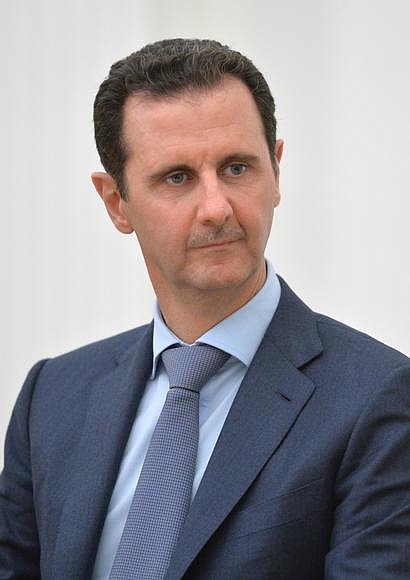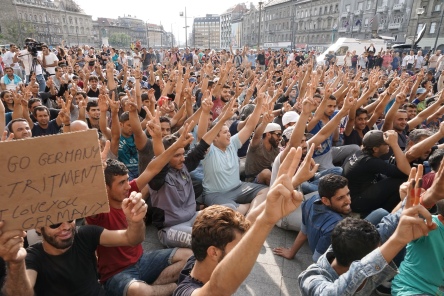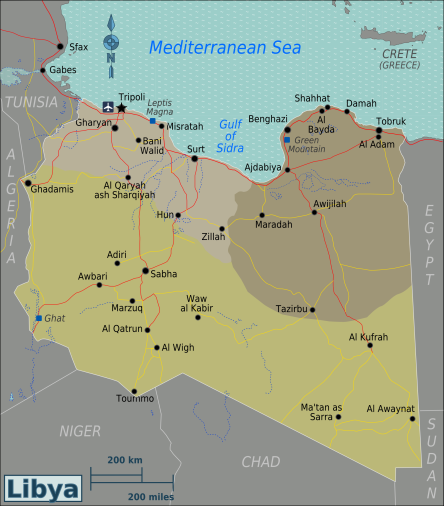By Lily Cusack
Precursor: The last names of the two soldiers in this article were not released in order to protect their families in Israel.
Fighting in a war is a scary concept for many, but in Israel, it’s a reality; all civilians are put into the draft at birth.
“It’s not one of the American wars where you can go fight very, very far from home,” Idan, an Israeli soldier, says. “I had soldiers in my company. They live across the road.”
On Feb. 17, two Israeli soldiers told an audience in Stotler Lounge how they gave up their teenage lives to fight in a war right outside their windows. Sagie and Idan were drafted to the Israel Defense Forces (IDF) in their late teens to help ease Israeli-Palestinian tensions.
The event was put on by Students Supporting Israel, a pro-Israel group that attempts to educate about Israeli culture and history. Members of the group believes that it’s essential for students to know how different people across the world live.
“It shows you a first-person glance of what it’s like to be an Israeli, to be a part of their world,” Vice President Hannah Turner says. “I think the best way that you can learn about a place and learn about their people is to hear it from their mouths.”
The speech featured two soldiers in reserves: Sagie, a 27-year-old student studying Law and Business from Kfar Saba, Israel, and Idan, a 29-year-old student studying Middle East Studies and International Studies from Karmiel, Israel. Both shared their separate stories of how they got into the army and what they did while serving.
Sagie started his story by describing his childhood dream: to be a basketball player.
“Back then, my dream was to break the barrier and become the first Israeli player in the NBA,” Sagie says.
However, a childhood tragedy quickly changed his mind. During the Second Intifada from 2000 to 2005, Palestinians staged an uprising against Israel. There were more than 140 terrorist attacks and more than 1,000 deaths.
On Nov. 4, 2002, a suicide attack took place in Canyon Arim Mall in Kfar Saba, very close to where Sagie lived.
“Try to imagine, I was sitting in front of the television watching the news, and I can’t believe I can go out on my balcony and see everything because I live close to the mall,” Sagie said.
Two people were killed in the attack, including Sagie’s friend Gaston.
“I found myself, as a teenager, sitting in front of Gaston’s parents with all my basketball friends. We didn’t know what to say,” Sagie says. “That was the day I was forced to grow up.”
He decided to extend his army service by five years and continues to serve in the reserves today. Serving in the reserves means he might have to drop his life and studies at a moment’s notice to fight for the IDF.
This happened in 2006 when Sagie was drafted to serve in the Second Lebanon War. He was dropped in a village right outside the Gaza Strip.
A few hours later, he was sent to join the artillery rocket team. They were preparing to shoot the rocket to the Palestinian side when they were told to stop. Some Palestinian kids were seen playing in the target site.
“They’re educating us to become moral, especially as an officer, because I need, in the future, to teach my soldiers how to behave properly, how to use the weapon in the right way,” Sagie says.
Idan joined the army in 2004, during a tumultuous time in Israeli history. Most of his duties in the beginning of his career involved guarding the border to ensure that terrorists did not enter the country.
“Every couple of days, there was a terrorist attack in one of the big cities in Israel or around the borders.”
One of his first missions of his service came in 2005 during the Israeli disengagement. Israel decided to withdraw from the Gaza Strip to initiate the peace process with the Palestinians. Although many citizens admired the more than 10,000 Israelis who lived in the regions, the IDF had to go in and force them out of their homes.
“We hoped this major gesture, this major sacrifice of the Israelis, the Palestinians would understand that,” Idan says. “They would take that and try to make progress toward peace.”
The plan did not work, and in 2006, Hamas, a violent terrorist organization, took over the Gaza Strip.
“The Hamas control over Gaza gave them a lot of opportunities to shoot rockets and to make terror attacks on the Israeli settlements around the Gaza Strip,” Idan says.
In 2009, Israel decided to enter the First Gaza War to take back the Gaza Strip from Hamas.
“We went to the exact same places we just left four years ago, which we gave them in order to make peace with them,” Idan says. “Unfortunately, I lost some very close friends of mine trying to take back some of the same places we just left.”
The fighting tactics of Hamas was often at the expense of civilians. They would put missile launchers in villages and towns, force the IDF to go into these towns and then use civilians as “human shields” while they shot at the soldiers.
One night, Idan received a covert mission to go into a town to take down the terrorists shooting rockets out of a building.
For many of the soldiers in his company, this location hit close to home.
They were secured outside the building and were ready to take the terrorists down, but Idan had to stop and think through his decisions. He knew that there might be civilians who had been taken hostage by the terrorists, and destroying the building would mean killing the civilians as well.
“We know that there is a big possibility of civilians inside [this] building. We can do nothing,” Idan says.
Idan decided to take one of his infantry platoons inside the house. They had a short battle with three terrorists, in which all of the terrorists were killed. It was not until the next morning that Idan found out he helped around 30 civilians escape the house.
“My rules of engagement is my weakness in the army, but it’s my point of strength in society, and I’m very proud of that,” Idan says.
Although they have done a lot with the army already, Sagie’s and Idan’s work with the IDF is far from over. Right now, they are trying to deal with terrorist organizations drafting teenagers into their ranks.
“We can be the strongest soldiers ever, but it’s not easy to fight teenagers,” Idan says. “We are not prepared for that.”






